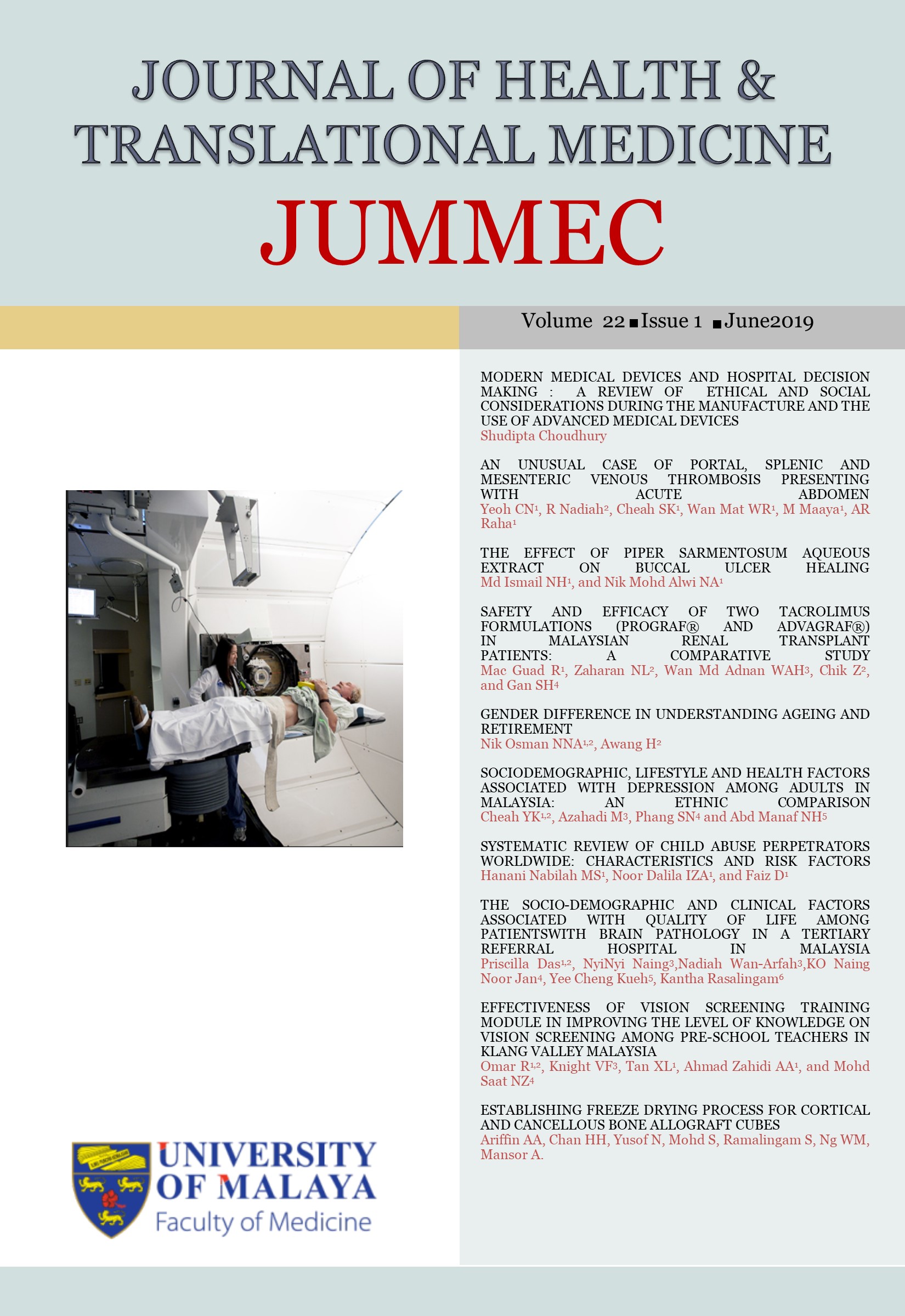EFFECTIVENESS OF VISION SCREENING TRAINING MODULE IN IMPROVING THE LEVEL OF KNOWLEDGE ON VISION SCREENING AMONG PRE-SCHOOL TEACHERS IN KLANG VALLEY MALAYSIA
Received 2019-04-27; Accepted 2019-05-26; Published 2019-06-29
DOI:
https://doi.org/10.22452/jummec.vol22no1.9Keywords:
preschoolers, vision screening training, teachers, level of knowledge, theory testAbstract
Empowering lay screeners, such as pre-school teachers, on vision screening is a cost-effective way to ensure larger populations of children can be screened. Although the validity of lay screeners in conducting vision screening were reported in several studies, none showed data concerning improvement of the level of knowledge among lay screeners after completing vision screening training, which could indicate the effectiveness of the training program. This study aimed to determine the level of knowledge of pre-school teachers before and after attending a training program. Sixty pre-school teachers from Tabika and Taska KEMAS were randomly selected. The Study Group (n = 30) was given theory and practical training on vision screening, whereas the Control Group (n = 30) was only given brief verbal instructions on how to conduct the screening. A theory test containing 15 questions related to the training modules were administered to both groups, before and after their training/briefing respectively. The findings showed that the level of knowledge among preschool teachers in the Study Group (73.24 ± 11.73%) was significantly higher than the Control Group (56.22 ± 13.11%) (p < 0.01). There was also a significant improvement in the level of knowledge among pre-school teachers in the Study Group after the training (p<0.001), whereas no improvement was noted among preschool teachers in the Control Group (p = 0.636). This study shows the importance of conducting training for pre-school teachers prior to their involvement in conducting vision screening in order to deliver an effective vision screening program to the preschoolers.
Keywords: preschoolers, vision screening training, teachers, level of knowledge, theory test
Downloads
Downloads
Published
Issue
Section
License
All authors agree that the article, if editorially accepted for publication, shall be licensed under the Creative Commons Attribution License 4.0 to allow others to freely access, copy and use research provided the author is correctly attributed, unless otherwise stated. All articles are available online without charge or other barriers to access. However, anyone wishing to reproduce large quantities of an article (250+) should inform the publisher. Any opinion expressed in the articles are those of the authors and do not reflect that of the University of Malaya, 50603 Kuala Lumpur, Malaysia.


